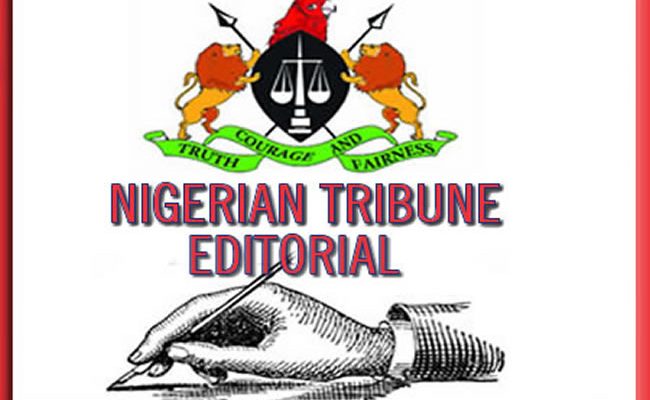
ON Tuesday, October 15, tragedy struck in Majiya Town in Taura Local Government Area of Jigawa State, as a tanker explosion occasioned monumental loss of lives and properties. The tanker fully loaded with petrol exploded along the Hadejia expressway. The tragedy, which occurred at around 10 pm, happened because residents of the area stormed the accident scene to scoop fuel from the upturned tanker. It was during this process that the tanker exploded, igniting a massive fire which consumed everything within sight. The driver of the tanker was said to be journeying from Kano to Yobe State when he lost control of the tanker near Khadija University, Majiya. Lamenting the loss of 50 members of his extended family during the incident, a resident of the area, Mustapha Majiya, said : “My nephews, Nuradeen Rabiu, 16, and Dini Babalo, 17, were among those killed. They tried to stop people from getting too close to the tanker and scooping fuel before the explosion. I just bought them books and new uniforms for the term.” Majiya added that some of the victims were mere onlookers who did not reckon with the danger of being around the scene.
The police spokesperson in Jigawa State, DSP Lawan Adam, reiterated the view that the incident was caused by locals collecting spilt petrol after the tanker accident. He said: “The residents were scooping fuel from the overturned tanker when the explosion occurred, sparking a massive inferno that killed 94 people on the spot. The incident left another 50 people severely injured, who were then rushed to Ringim and Hadejia General Hospitals for treatment.” Following the incident, the Senate mandated the National Orientation Agency (NOA) and other relevant authorities to carry out adequate sensitisation of Nigerians on the dangers involved in scooping oil during tanker accidents. The Senate gave the directive following a motion moved by the senator representing Jigawa North-West in the National Assembly, Senator Babangida Hussaini, on the incident. Also, on Tuesday this week, the Jigawa State governor, Umar Namadi, briefed President Bola Tinubu on the disaster. Speaking with newsmen at the State House, the governor disclosed that the tragic accident claimed 181 lives, with 80 people hospitalised, and 210 families affected, adding that the Nigerian Safety Investigation Bureau had commenced investigations into the explosion. He said: “I felt it is important to come and brief the president on what happened and what we are doing as a government, and also thank him for sending a delegation to the state immediately the incident happened. This action taken by the president was really appreciated by the people of Jigawa State and I feel it is right to come and thank him for that and to brief him about the situation, about where we are and what we are trying to do.”

The governor assured that his administration had covered the medical bills of those injured and provided interventions to support bereaved families, and that President Tinubu had pledged support for the victims. He added that in his government’s bid to address the root causes of the tragedy, he had set up a committee chaired by a retired Deputy Inspector-General of Police (DIG) even as President Tinubu had also directed the corps-marshal of the Federal Road Safety Corps (FRSC), Shehu Muhammed, to investigate the incident and fashion out mechanisms to prevent similar tragedies nationwide.
To say the very least, the Jigawa tanker explosion is horrendous. It is extremely distressing that 181 lives were lost to an incident that could have been well managed to minimise its tragic impact. Sadly, the incident again highlights the persistent issue of deaths arising from the opportunistic act of scooping fuel after tanker accidents. In the instant case, there was initially no fire outbreak following the flipping of the tanker in question after an accident on the Hadejia highway. However, an inferno ensued as residents of the area tried to take advantage of the situation by getting free fuel. This is a recurring chapter in the book of tragedies that fuel tankers have become in the country, and it is time the NOA and other critical organs of the state, including the FRSC and the Fire Service, stepped up enlightenment campaigns on the issue. But this step, important as it is, cannot end the regime of fuel tankers in the country. The veritable issue is the accident-prone, risky method of transporting fuel across the country. Over the years, fuel tanker fires have occurred at different times of the day, leaving sorrow, tears and blood in their trail. Why transport flammable materials on the road over such long distances? Why not transport fuel in containers via rail transport? How many lives have to be needlessly and cavalierly wasted before the authorities do the right thing?
We do not believe that the current method of transporting fuel across the country is safe. Apart from the poor road network, there is the question of reckless driving by tanker drivers that agencies like the FRSC have hardly addressed despite their accustomed rhetoric. More often than not, besides their seeming preoccupation with filthy lucre, the officers and men of the agency seem to be on the road with the sole purpose of harassing car owners while leaving the drivers of trucks and trailers to do just as they please. Fuel tanker accidents are routine, but the situation would even have been worse if other road users had not chosen to make allowances, as it were, for the drivers of these large vehicles who carry on as lords on the road, and who are reportedly not quite averse to the use of hard drugs and alcohol. It is a fact that many of these drivers actually travel with bottles of alcohol, knowing that they are never going to be pulled over and subjected to breathalyzer tests. Besides, many of the vehicles are literally pushed onto the roads in spite of various mechanical faults. With both driver and truck in a questionable state, it is no wonder that accidents happen with deadly rapidity and frequency. And when these accidents happen, they cause irreparable damage, with hundreds of hapless citizens going to their early graves, betrayed by their own government.
Stopping citizens from trying to scoop fuel from overturned tankers is good, but it is hypocritical not to recognise the subtext of poverty and immiseration. Over the years, not a single member of the elite class has been caught scooping fuel in this manner, but it is not because the elite have better morals. It is because they are economically better off, and quite beyond such dangerous endeavours. This is why governments at all levels must reverse the appalling conditions in which the majority of Nigerians remain trapped.
We mourn the compatriots lost in the Jigawa explosion and hope that their case will spur the government into taking concrete action against tanker fires. We also acknowledge the financial support provided by public-spirited individuals and the kind words and expression of solidarity by members of the international community, including the government of the Kingdom of Saudi Arabia. We hope that the survivors will be given all the support they need in order to be back on their feet in the shortest possible time.
Read Also: Bauchi govt embarks on massive sanitation







